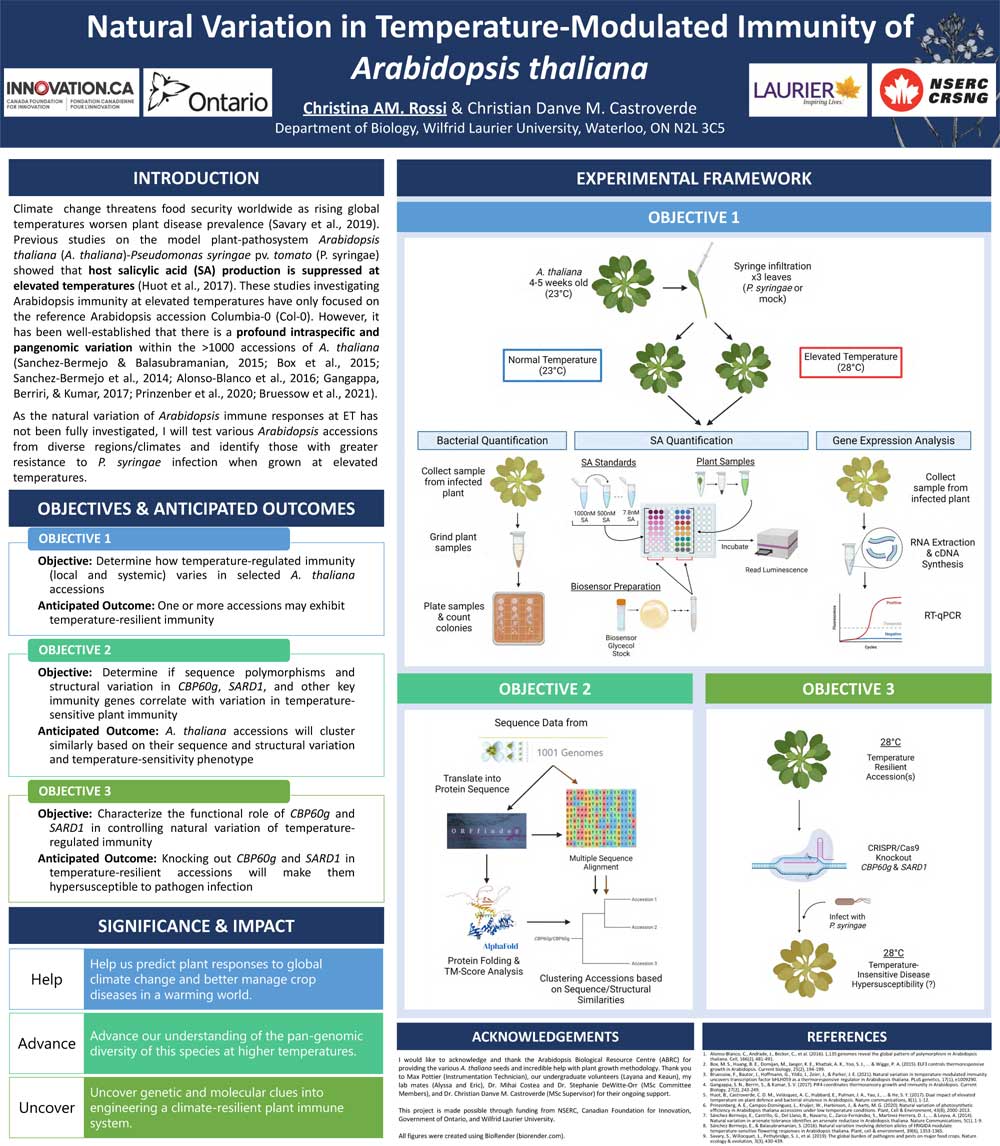
Global climate change threatens food security worldwide as rising global temperatures worsen plant disease prevalence, resulting in increased crop losses. Previous studies in the model plant species Arabidopsis thaliana showed that elevated temperatures suppresses salicylic acid production, which is a central plant hormone mediating immune responses against pathogens and pests. These studies investigating temperature-regulated Arabidopsis immunity and disease resistance have only focused on the reference Arabidopsis accession Columbia-0 (Col-0). However, it has been well-established that there is a profound intraspecific and pangenomic variation within the >1000 accessions of A. thaliana. As the natural variation of Arabidopsis immune responses at elevated temperature has not been fully investigated, our work aims to address this critical knowledge gap.
To achieve this main objective, we have been characterizing various Arabidopsis accessions from diverse geoclimate regions. Based on preliminary bacterial disease resistance assays, we have identified several potentially temperature-resilient candidate accessions. These accessions have reduced disease symptoms and lower bacterial growth at elevated temperature compared to Col-0. In addition, these accessions exhibit similar bacterial pathogen proliferation at normal and elevated temperatures. To elucidate the molecular mechanisms controlling their temperature-resilient immunity, we are currently conducting expression analyses of key immunity-related genes and quantification of salicylic acid levels.
Our identification of these Arabidopsis accessions with potentially temperature-resilient defence responses will help uncover the fundamental molecular and genetic components underpinning temperature-sensitive plant immunity. On a broader level, our findings could aid in predicting how plants may respond to our changing climate. Overall, this research will potentially lay the mechanistic groundwork for engineering disease-resistant and climate-resilient plants, which will have broad impacts on agricultural and natural ecosystems.

